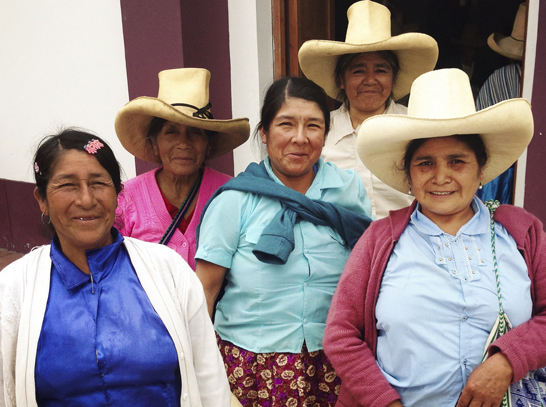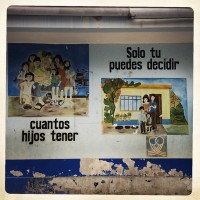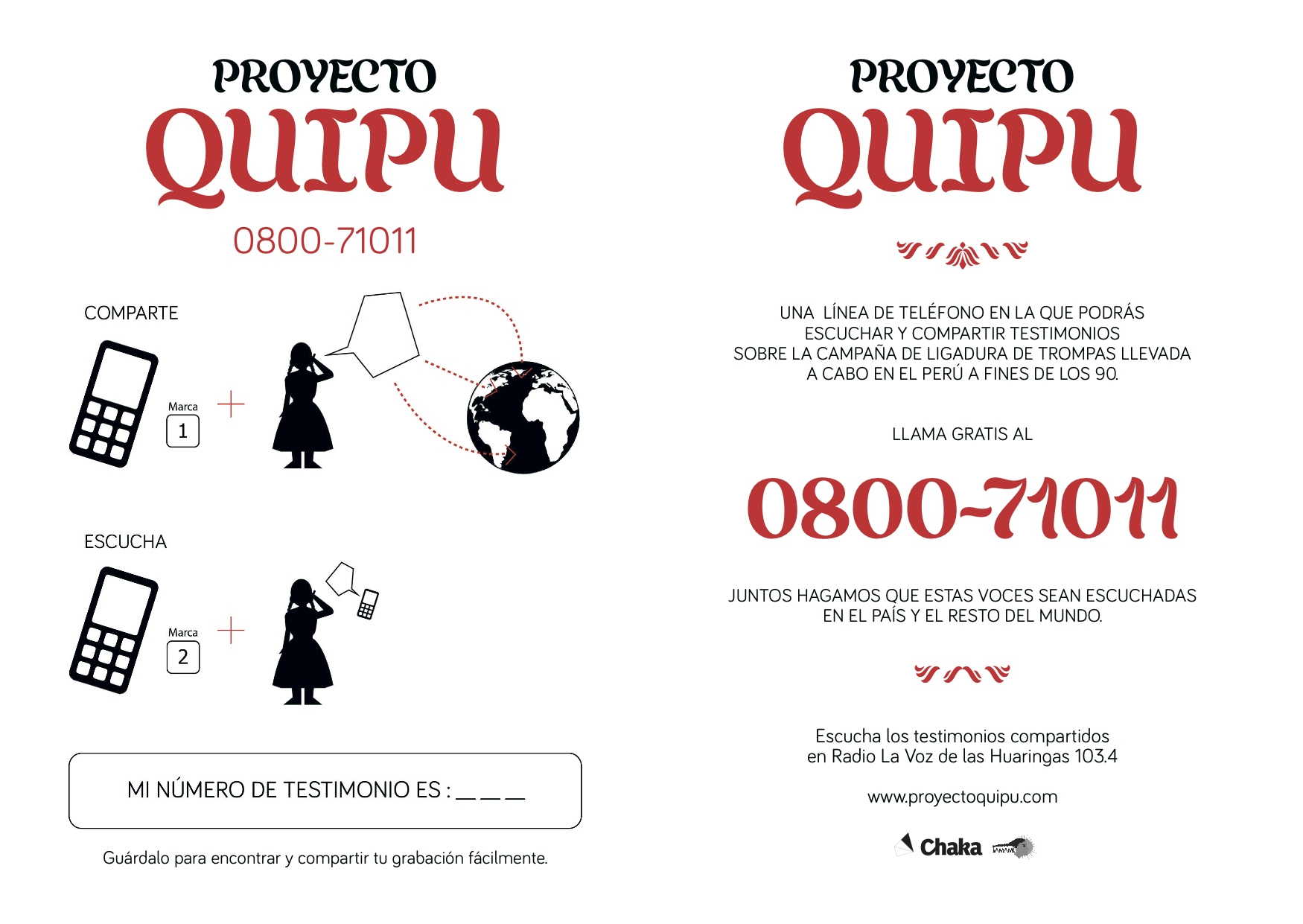“This concept of speaking up and listening could sound quite simple but it's actually quite powerful for the community.” – Maria Court, Quipu Project developer.

A group of women from Huancabamba contributing to the Quipu project. (Photograph by Alejandra Velez, republished with permission.)
The Quipu Project is an “interactive documentary”. Not only researching and recording personal histories, it is simultaneously an ongoing and community driven project accessible online.
Quipu aims to collect and share the testimonies of some of the 300,000 mostly indigenous women and men affected by Peru's sterilization campaign in the 1990s – many of whom did not give their informed consent or were forced to do so.
Currently, Quipu is working on a pilot in Huancabamba, northern Peru. They hope to spread the project across the country, giving every affected individual a chance to contribute.
Storytelling over the phone
Contributors can record their stories and listen to themselves and others through an interactive phone line, taking advantage of increasing access to mobile phones. The stories will then be available online, through the Quipu website.
Their goal is to eventually develop the system to let the storyteller know the story has been heard. This affirmation works against the minimal representation of these indigenous groups in local government or media.
There are other reasons, for this project, too. The Quipu project acts as an exercise in learning how to tell this highly personal story. As investigation into these crimes is ongoing, the trial may become open again to testimonies. If this happens, there may be a possibility for some of these community members may go to the country's capital of Lima to defend their case. If so, these storytelling skills may have not only personal, but judicial impact.
Connecting with communities
Dr. Matthew Brown, a researcher on Latin America from the University of Bristol, is involved in the project. He wrote on the project blog in September:
I have been talking about our project with a variety of Peruvians, gauging the opportunities that we might be able to offer against the many difficulties which surround the project and the politicised opinions which surround any subject linked to the polarising Fujimori regime…memories of the mass sterilization project have not received the same level of political or judicial attention as what we might see as more straightforward, ‘political’ human rights abuses.
Perhaps this is due to memory fatigue, a desire by Peruvian society to move on from thinking about its past at a time of relative economic upturn. Perhaps it is because global economic crisis has reduced the funds available to campaigning NGOs. Or perhaps it is because the majority of victims were women, and because they lived in the provinces, far from central government.
The Quipu team – which, when not in Peru, is based in London's Chaka Studio – recognizes that there are challenges to connect with these often remote communities. They are currently working with the local women's organisation Instituto de Apoyo al Movimiento Autónomo de Mujeres Campesinas [sp] (AMAMC) in Huancabamba to connect with local female leaders.

An old painted advertisement for family planning: “only you can decide”. By Alejandra Velez, republished with permission.
During the research period for the project they also ran a workshop to gauge local interest. From the project blog:
The reception of the women’s organization in Huancabamba, was incredible. Esperanza, one of its leaders, began promoting the interactive workshop that they were organizing in collaboration with Quipu Team, days before the crew arrived. She sent a message through the local radio, calling name by name to each woman that was invited to come. Without her help and enthusiasm we would never have been able to achieve a successful test of a technology so alien to most of our participants.
Peru is geographically very diverse, and the sterilisation campaign affected many indigenous communities across the country, from the northern mountains to the western coast. Many of the communities, such as those in Huancabamba, speak Spanish. However, others such as the Inca groups living closer to Cuzco speak Quecha. It is likely, says Maria Court, that they will eventually move towards a translation program to accommodate other languages.

A brochure from the Quipu project advertising the program. Republished with permission.
“Quipu” is an ancient Inca communication system made of knotted threads, not unlike “a collective string of oral histories.”




2 comments
Excellent project, the particular program that damaged so many poor and vulnerable women in Peru –and is being shared by first-person testimonies thanks to Quipu– should be world-known, shared world-wide, because their experiences are the result of certain “population-control politics” originated by leaders in first-world countries that have also affected other parts of the third-world, without considering the human suffering involved … (dismissed as hardly acknowledged “collateral damage”)